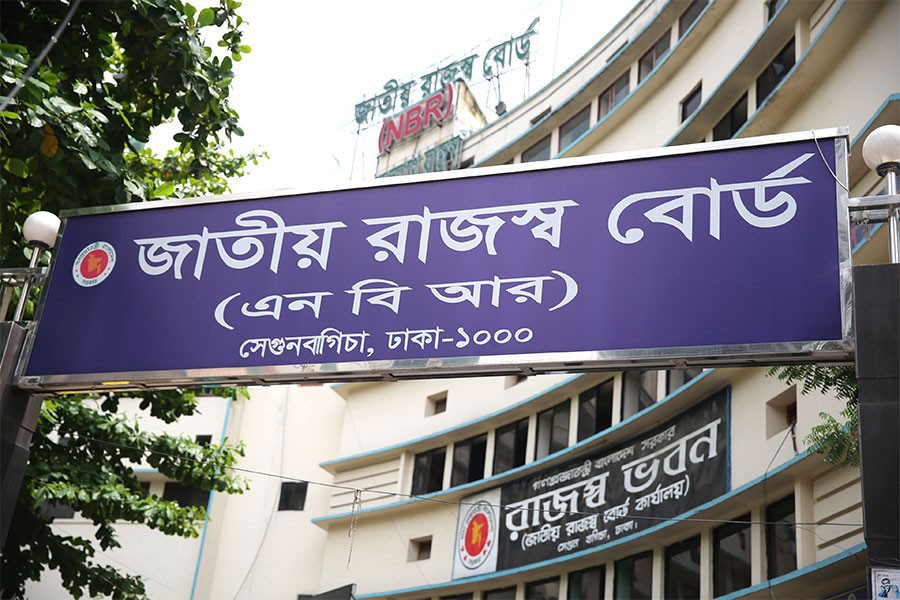Distortions like advance tax, tax on tax, specific VAT, VAT deducted at source and patchy refund mechanism jumbled up to deviate an ideal taxation system called value-added tax in Bangladesh, prompting a rethink.
Proper VAT structure must have refund system in all stages of production and distribution, says an interim progress report of a committee formed by the National Board of Revenue (NBR) in an obvious process of much-cherished VAT recast.
The five-member committee, formed on January 26, 2022 with Dr Abdur Rouf, Director-General of the Customs Intelligence and Investigation Directorate, as its chief, submitted the progress report to the NBR recently.
It is working to frame a perspective plan for raising the VAT-GDP ratio in line with the targets of tax-GDP proportion fixed in different national plans of the government.
Members of the committee sat for a number of meetings with the stakeholders and businesses to elicit their opinion on the prevailing VAT system of the country.
The panel is tasked with recommending structural changes to the current VAT system, widening VAT net, conducting a feasibility study on VAT-collection potential, impact of upward and downward adjustments to VAT.
To achieve a 17-per cent growth in the tax-GDP ratio by 2041, the government will have to attain 1.01-per cent growth annually, which, according to the report of the committee, is a difficult task without proper action plan.
Augmenting internal revenue would be required for implementing the eighth five-year plan 2020-25, the second perspective plan 2021-41, and Bangladesh Delta Plan 2100. "A major part of the revenue could be collected from value-added tax if the recommendation of the committee is implemented," the report reads.
Currently, tax-GDP-ratio growth is 7.9 per cent. The tax-GDP ratio has decreased by 2.0 percentage points in the last 10 years because of changing GDP base year by the government.
In the first perspective plan (2011-21), the government could not meet its tax-GDP target at 16 per cent.
A standard VAT system has to follow the theme 'lowest possible single rate and widest possible coverage', the report says.
The panel suggests that VAT law should be understandable to all and "there must not be any vacuum or grey area".
Talking to the FE, Dr Rouf said the committee is working on the perspective-plan issues focusing on automation and also removing the existing bottlenecks.
"Our objective is to check VAT evasion without harassing taxpayers. The perspective plan would follow government targets on tax-GDP ratio by 2041," he adds.
The NBR collects 55 per cent of its tax revenue as VAT under the purview of the VAT and Supplementary Duty Act 2012.
In the report the panelists have singled out major components of the country's VAT system that are crippled with complex rules and regulations, poor VAT management and VAT culture, inefficient VAT consultant, poor ICT infrastructure.
The government has implemented the new VAT and SD law from 2019 by scrapping the previous Vat law 1991 to get rid of the distorted law.
However, the new VAT law, too, remains distorted like the previous one due to its frequent changes following recommendations from the businesses.


